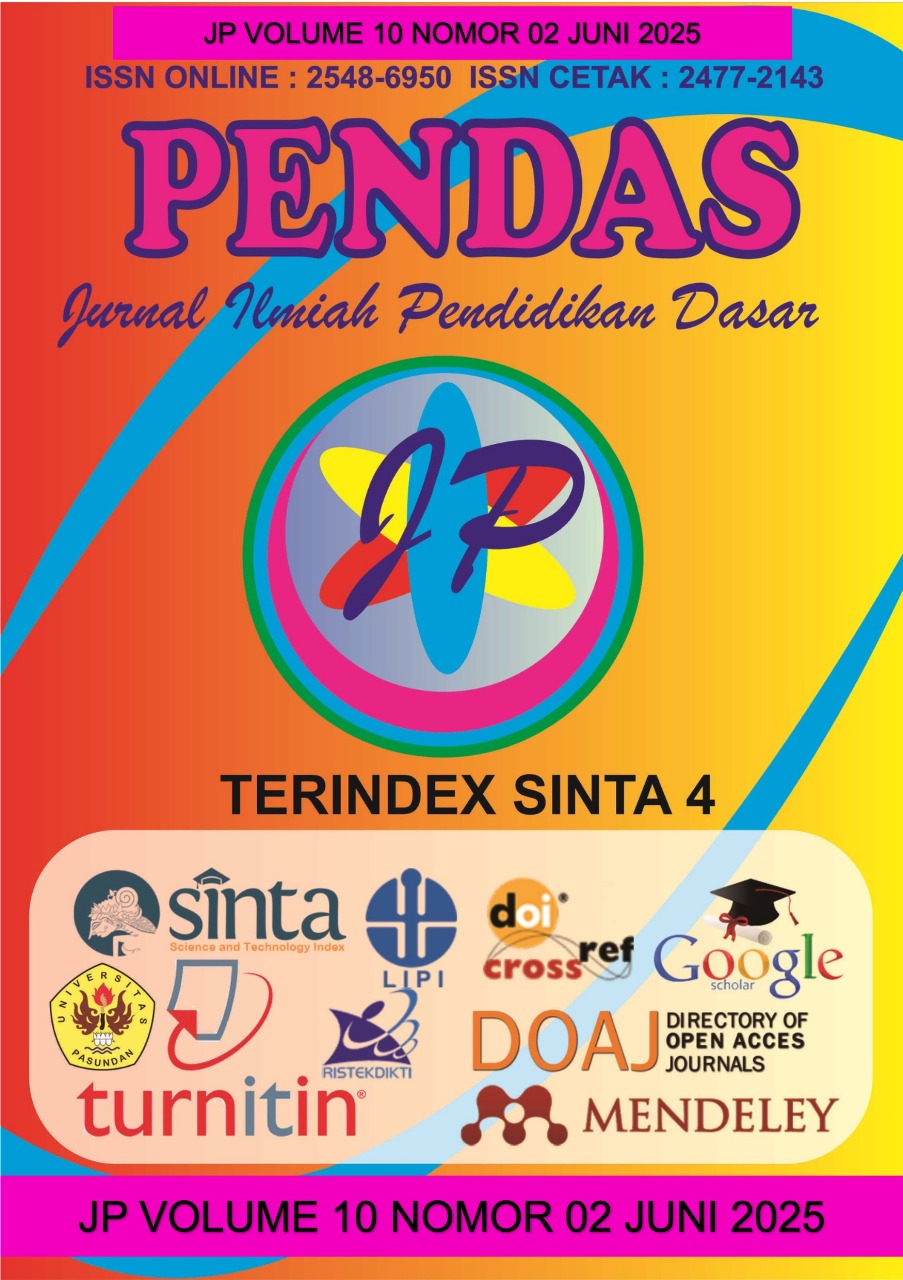Analisis Pembelajaran Berdiferensiasi dan Keterampilan Sosial-Emosional dalam Meningkatkan Hasil Belajar IPS Terpadu di SMP Negeri 2 Silimakuta
DOI:
https://doi.org/10.23969/jp.v10i2.30586Keywords:
differentiated learning, social-emotional skills, learning outcomesAbstract
This study aims to analyze the implementation of differentiated learning and social-
emotional skills in improving student learning outcomes at SMP Negeri 2 Silimakuta.
The research method used is descriptive qualitative with a case study approach.
The findings indicate that social studies teachers have applied differentiated
learning through five stages: content differentiation, process differentiation, product
differentiation, creating a supportive learning environment, and utilizing technology.
Additionally, the application of social emotional skills focuses on five main
dimensions: self-awareness, self management, social awareness, relational skills,
and responsible decision making. The integration of differentiated learning and
social-emotional skills has been proven effective in enhancing student engagement,
improving student achievement, and developing character and leadership. This
research shows that appropriate teaching strategies can positively impact students'
academic performance and character development.
Downloads
References
Goleman, D. 2019. Emotional
Intelligence: Why It Can Matter
More Than IQ (25th Anniversary
Edition). Bantam Books.
Goleman, D. 2019. The Social and
Emotional Learning Revolution:
Making the Case for Emotional
Intelligence in the Classroom.
Harvard Education Press.
Kemendikbudristek. 2020.
Pengembangan Pendidikan
Karakter untuk Peserta didik di
Indonesia. Jakarta: Kemendikbud.
Miles, M. B., & Huberman, A. M. 1993.
Qualitative Data Analysis: A
Sourcebook of New Methods.
SAGE Publications.
Sugiono, M. 2014. Metode Penelitian
Pendidikan: Pendekatan
Kuantitatif, Kualitatif, dan R&D.
Alfabeta.
Downloads
Published
Issue
Section
License
Copyright (c) 2025 Pendas : Jurnal Ilmiah Pendidikan Dasar

This work is licensed under a Creative Commons Attribution 4.0 International License.














































